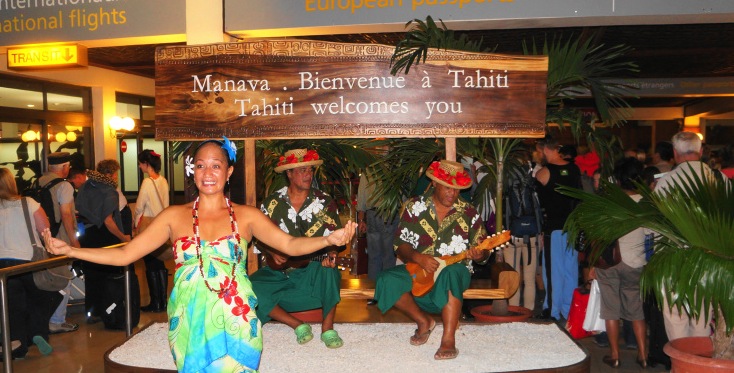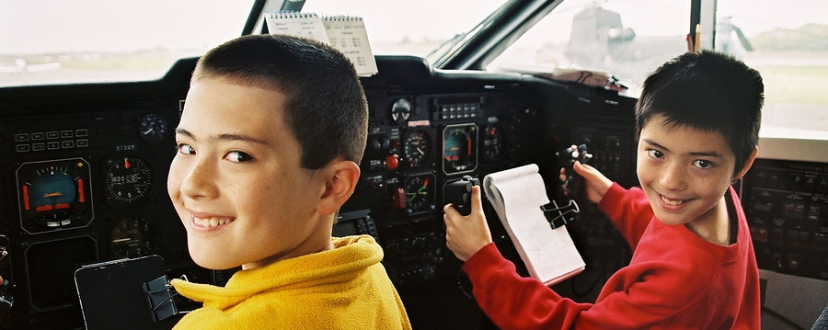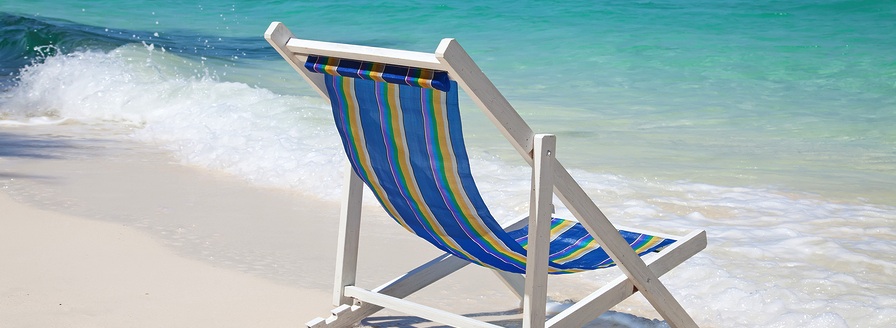After arriving in Tahiti recently for my fifteenth or so visit, (he said, trying to keep as modest a tone as possible) I was reminded once again that traveling doesn’t necessarily have to be the cruel and not so unusual punishment we have come to expect.
I was flying Air Tahiti Nui, and even in economy, with enough leg-room and enough in-seat movies so that I didn’t have to resort to watching the Gangster Squad in French, it was – in relative terms – a pleasant enough flight.
What was most pleasing about getting there, though, was that meeting us as we entered Tahiti’s terminal, just as there had been for every one of my other flights, was a woman presenting each arrival with a flower, and a couple of local guys, dressed in brightly colored traditional outfits, serenading us with guitar and ukulele.
How much nicer travel would be, I thought, if someone, perhaps TSA agents needing a little overtime, would meet us in a similar manner when we arrived at LAX, or JFK, or Miami.
How hard would it be to arrange? After all, if they used TSA agents, security clearance for the performers wouldn’t be an issue. And with the lack of common sense so many of the agents exhibit, you just have to believe that many of them are already musicians.
And this would be America going to work. So you’d think they’d be able to put together an even more extravagant, and memorable, performance than some little place like Tahiti, who has nothing more to draw from financially than the ever-dwindling resources of France.
Can’t you see it? A Latin beat as you enter Miami. Jazz welcoming you to New Orleans. A cacophony of car horns for New York.
My only fear? That the TSA-staffed program would have women handing out flowers, too – as they barked: “Married. Behind your left ear. Single. Behind your right ear. Looking forward to a cavity search. Behind both.” — Bob Payne
Long-time editor-in-chief of the travel humor site BobCarriesOn.com, Bob Payne was recently appointed as a consultant to the TSA’s performing arts program.
hugontour.wordpress.com photo




